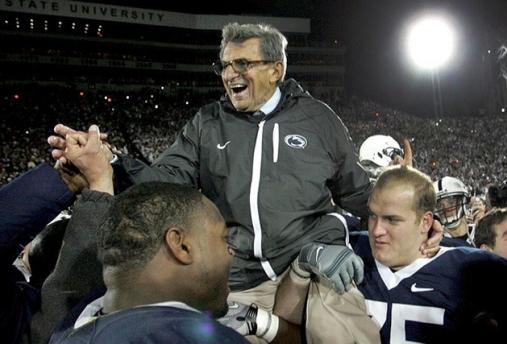Veterans have a distinct place in our society as those who have carried the heavy load of sacrifice. They have a distinct place in the world of philanthropy as well; they are the only social cause that is not charitable in nature.
Yes, there are charities that help veterans, but these charities only exist because the Department of Veteran Affairs (VA) is charged with the all-consuming mission to care for all aspects of a human life.
Whether it is education, employment, benefits, health care, and housing the VA has been tasked with a difficult mission and when they fall short, nonprofits help to cover the gaps. These nonprofits are not doing this because of charity: They are ensuring that our nation honors the promise we have made to our veterans for their selfless service.
Yet, there is another pillar of veteran support which understands that we must not only keep our promises, but we must invest in our veterans much like we invested in them after WWII as a catalyst for national success.
The Promise
As a veteran of both Iraq and Afghanistan I am truly appreciative of our nations support of the war-fighter regardless of feelings about the war. Unlike the Vietnam generation, our nation has grown the capacity to understand the difference between the policy and those who are charged with implementing that policy.
Yet, I am also pessimistic because veterans of Iraq and Afghanistan represent less than 1 percent of the entire population -- this limits the political capital previous veteran generations were able to muster in order to force the political class to not only keep their promises, but keep them in the spirit in which they were made.
This erosion of what veterans deserve can already be seen in some of the proposed budget cuts that will impact both the VA and the Military Retirement System, as covered by Military.com
Whether it is the House Budget Committee, chaired by Rep. Paul Ryan (R-Wis.), which is studying a plan to save money by canceling enrollment of any veteran who doesn't have a service-connected medical condition (even though the process for establishing service connection is a national disgrace) or the Obama Administration's desire to re-examine the military retirement system, which they have called "out of line with most other government or private retirement plans" (though by its nature military service has no government or private equivalent), the veteran promise is already under siege.
Again, since these changes only impact a sliver of our society there has been no major outrage from those who have recently made their voices the loudest like Occupy Wall Street or those aligned with the Tea Party movements. It is telling that when Wisconsin was shut down because of changes to retirement and collective bargaining issues, there was a heated national dialogue by both conservatives and liberals on the impact to our nation.
Sadly, our veterans get only a muted response when faced with unconscionable cuts to services and benefits that were promised to them and more importantly, that they earned through their sacrifices and the sacrifices of their families.
The Investment
It is under this backdrop that we must not only see our veterans through the political lens of what was promised, but through the paradigm that their success is a sound strategic investment. It will become critical for those who care about supporting our veterans to articulate a message that transcends the needs of just the veteran, and converges those needs into alignment with that of the larger society.
An example of this convergence can be seen through the costs that are sunk into current military training. According to MSNBC, the total cost of training a service member in today's military can range from $44,887 (Marine Infantryman) to $19 million (F-16 fighter pilot), these costs do not take into factor leadership and technical training that a service member receives as they progress in their military career.
As a citizen, it is critical for us to understand how this investment impacts our national security. As a taxpayer it is critical for us to leverage this investment not only benefit of our military, but for our larger society as well.
We should be clamoring to integrate these heroes into our communities and industries. During these difficult economic times, it is apparent that our nation needs plowshares and the men and women who can use them to make our society a fertile place for continued success. To not leverage our returning veterans' talents would be self-defeating and a crime against our future children who are in desperate need of leadership and heroes.
Organizations such as Mission Continues, Team Rubicon, Service Nation, Work Vessels for Vets, and Leave No Veteran Behind are just a few of the innovative veteran nonprofits that understand that supporting our veterans will not only make us feel good as a nation, but is an investment that will ultimately make us a better nation.
These nonprofits understand that our returning veterans are uniquely prepared through their training and experiences to take on complex problems and provide leadership to solve those problems. They understand that our veterans cannot continue to help our nation if they are seen only through the labels of PTSD, TBI, or as damaged goods. They understand that a veteran's potential must be utilized for societies benefit.
As a nation we must support these organizations and incorporate their ethos not only for the veterans' sake, but for ours as well. Finally, we must understand that keeping our promise to our returning veterans and investing in them so that they can positively impact our nation's future is not charitable... it is simply the smart thing to do.
?
Source: http://www.huffingtonpost.com/eli-williamson/the-antithesis-of-charity_b_1237421.html
julio cesar chavez jr jason segel turducken power rangers jungle fury power rangers jungle fury ufc 139 fight card houston nutt


